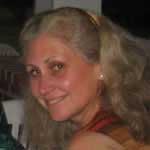UWG Professor Inspires Gender Equality On Campus and Off
by Rachel Williams
Dr. Debra MacComb is more than just an associate professor of English at the University of West Georgia—she’s a catalyst for change. Her mother and most of her maternal relatives were all teachers, a family profession Dr. MacComb aspired to join. Her expertise goes far beyond the foundational English composition classes, though she does teach these courses regularly. Her specific area is American Literature, 1865 – 1920, with specializations in cultural studies, gender, and genre (the novel).
 In 1995, Dr. MacComb completed her Ph.D. and dissertation on American “divorce novels” and the way women characters were represented within this plot. It discusses late 19th to early 20th century American literature gender, law and cultural studies, and was later published as a book titled Tales of Liberation/Strategies of Containment: Divorce and the Representation of American Womanhood, 1880 – 1920. Currently, Dr. MacComb is teaching a class at UWG called Representing American Womanhood, which students can take toward the Gender and Sexuality Studies minor at UWG.
In 1995, Dr. MacComb completed her Ph.D. and dissertation on American “divorce novels” and the way women characters were represented within this plot. It discusses late 19th to early 20th century American literature gender, law and cultural studies, and was later published as a book titled Tales of Liberation/Strategies of Containment: Divorce and the Representation of American Womanhood, 1880 – 1920. Currently, Dr. MacComb is teaching a class at UWG called Representing American Womanhood, which students can take toward the Gender and Sexuality Studies minor at UWG.
“I use history, art history, literature, film, television, cartoons, song lyrics— anything I can find from both the high and popular cultures that attempt to define an era’s vision of what American women should be,” Dr. MacComb explains. “One of the topics the class returns to with each model of womanhood is, whom or what does this construction serve? Although students are pretty savvy about the idea that gender roles are constructions, many still feel a powerful tug toward that norm, and I feel the more we discuss what lurks behind the icons of femininity, past and present, the better off we are. When I teach the Representing American Womanhood class, I always ask how many students consider themselves feminists. Usually one or two women will confess that they are, and I’ll ask if any of the men are. ‘But men can’t be feminists!’ And yet both men and women will comment on the negative tactics used in the various media to elicit normative gender roles.”
Equality and diversity is important to Dr. MacComb outside the classroom, too. She is currently writing a book examining Mark Twain and masculine domesticity, which re-reads him against the traditional gender binary that defined him until just recently. And she knows that even within classes like hers, unfair gender norms can still creep into behavior.
“While I feel that our student population is fairly diverse, I’m surprised at what I would consider its ‘blind spots,’” she says. “Celebrating diversity means going beyond assumptions, and I've noticed that students, especially in their first and second year, seem to choose a form of address that refers to marital status rather than professional accomplishment or academic rank. My male colleagues aren't called ‘Mr.’, but I and another female colleagues are frequently called ‘Mrs.’ or ‘Miss.’ I sometimes respond to it by saying, ‘Mrs. MacComb is my mother. Is she here?’ The word ‘diversity’ has become as unpopular as ‘feminism.’ Students might say, ‘I came to get a degree, not worry about race or gender.’ But social justice cannot be won without serious and sustained dialogue about who we are as a campus and a nation, and a university is exactly where we need to teach and learn that.”
